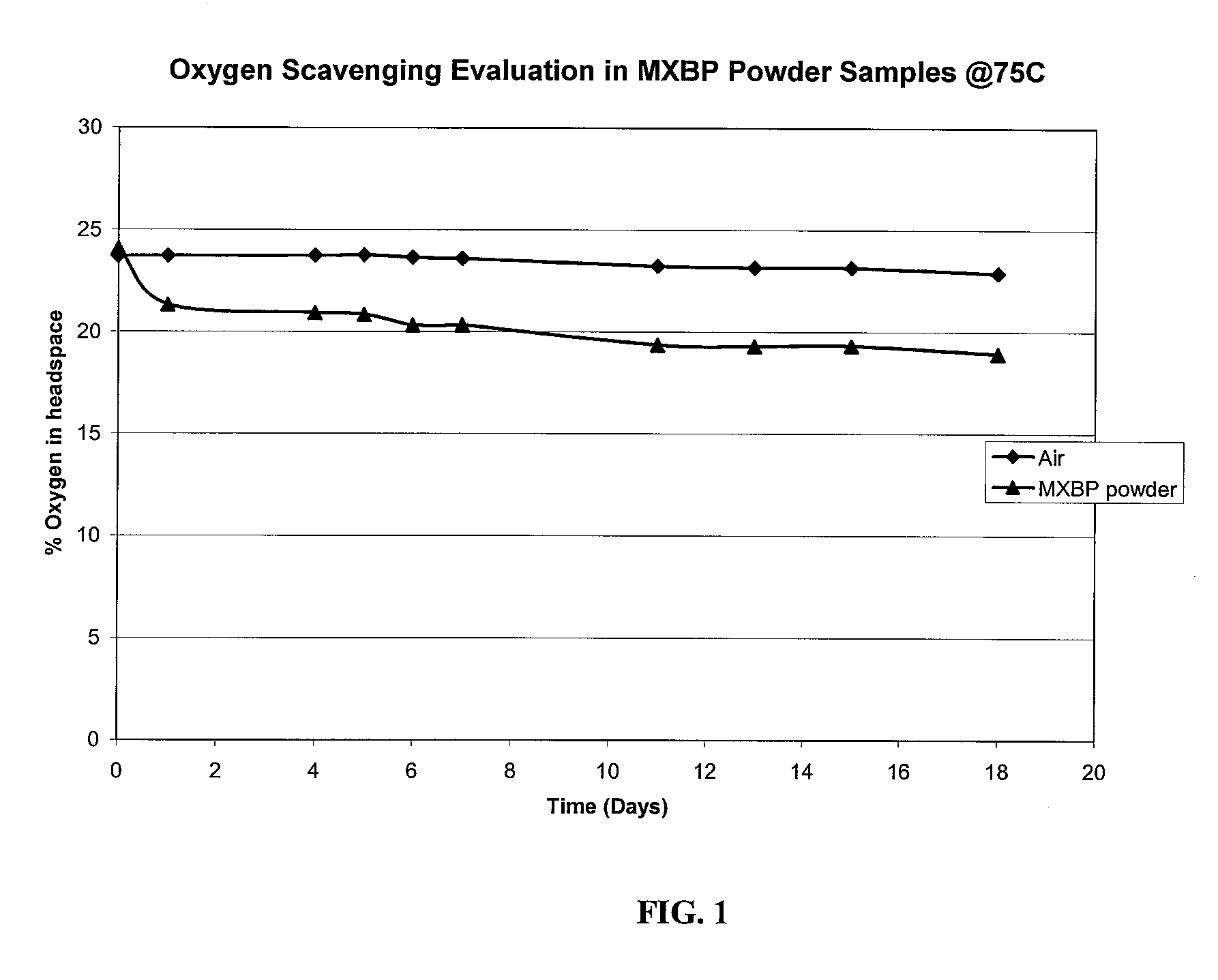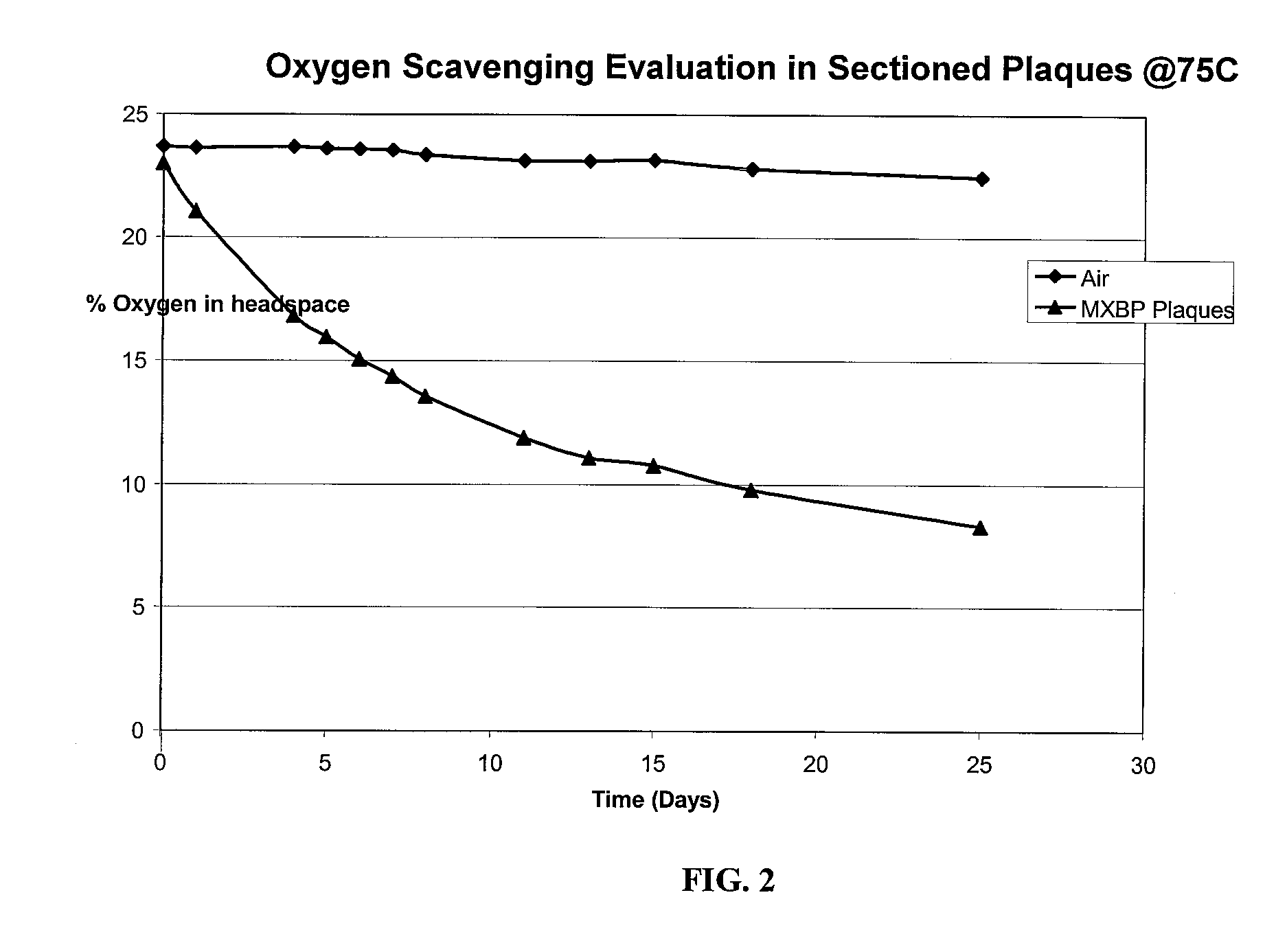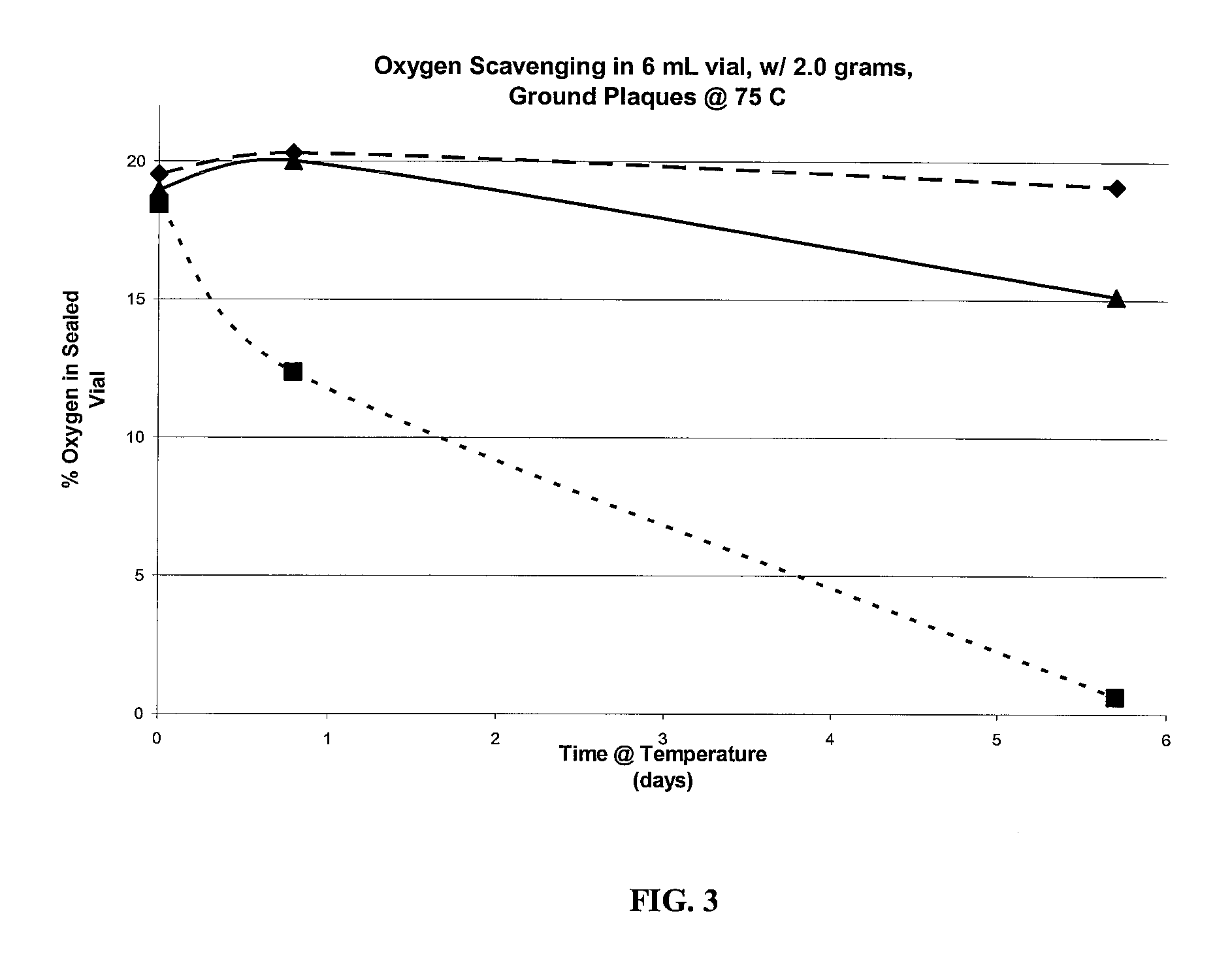Oxygen scavenging molecules, articles containing same, and methods of their use
a technology of oxygen scavenging molecules and articles, applied in the field of compounds, can solve the problems of narrowly restricting the choice of base polymer resins and adding cost to the layer
- Summary
- Abstract
- Description
- Claims
- Application Information
AI Technical Summary
Problems solved by technology
Method used
Image
Examples
example 1
[0137]2 g of MXBP is placed in a 22 cc vial having an oxygen sensitive oxydot on the sidewall of the vial. The vial is sealed such that there is no exchange with the outside environment. A sealed, empty air vial was used as control.
[0138]
m-xylene bis-phthalimide (MXBP)
[0139]Initial percent oxygen levels in the vials are measured at room temperature (˜22° C.) using an Oxysense instrument (Oxysense, Inc., Las Vegas, Nev.). The vials are then placed in an air-circulated oven at 75° C. After 1 day in the oven, the vials are removed, cooled to room temperature, and measured for percent oxygen levels. After measurement of 5 oxygen levels, the vials are returned to the 75° C. oven. This procedure is repeated for 18 days. Data generated from these measurements is shown in FIG. 1.
[0140]As seen in FIG. 1, MXBP scavenges approximately 4% of oxygen after 18 days.
example 2
[0141]PET resin (Vitiva™, Eastman Chemical Company, Kingsport, Tenn.) is dried in a Piovan Dryer (Model # DSN 520 HE, Piovan Canada, Mississauga, Ontario), at 170° C. for 4 hours (dew point of air used =−50° C.) prior to being fed to an injection molding machine. Moisture content of the resin (after 4 hrs / 170° C.) is measured by a Mark 2 HP Moisture analyzer (Sartorious Omnimark Instrument Corp., Temp, Ariz.). The moisture content of the dried PET is approximately 33 ppm.
[0142]Cobalt containing polyester (Masterbatch) (4000 ppm Cobalt) is dried in a Dri Air Model RH 15 dryer (Dri-Air Industries, Inc., East Windsor, Conn.) at 291° F. for 3 hours.
[0143]A mixture of 2.5 wt % MXBP powder, 2 wt % Cobalt Masterbatch, and 95.5 wt % Vitiva is blended in a bucket. The mixture is poured in the feed hopper of a Husky LX160 injection molding machine (two-cavity, 160 tonnes clamping pressure, Husky Injection Molding Systems Ltd., Novi, Mich.) to produce preforms. The preforms made from this mixt...
example 3
Preparation of QC (Reference)
[0145]A preform containing nylon MXD6 (1.5%, based on total weight of preform), cobalt masterbatch (2%, based of total weight of preform), in PET is prepared. The preform is then ground up and used as a control during oxygen scavenging testing.
PUM
| Property | Measurement | Unit |
|---|---|---|
| weight percent | aaaaa | aaaaa |
| thickness | aaaaa | aaaaa |
| weight percent | aaaaa | aaaaa |
Abstract
Description
Claims
Application Information
 Login to View More
Login to View More - R&D
- Intellectual Property
- Life Sciences
- Materials
- Tech Scout
- Unparalleled Data Quality
- Higher Quality Content
- 60% Fewer Hallucinations
Browse by: Latest US Patents, China's latest patents, Technical Efficacy Thesaurus, Application Domain, Technology Topic, Popular Technical Reports.
© 2025 PatSnap. All rights reserved.Legal|Privacy policy|Modern Slavery Act Transparency Statement|Sitemap|About US| Contact US: help@patsnap.com



